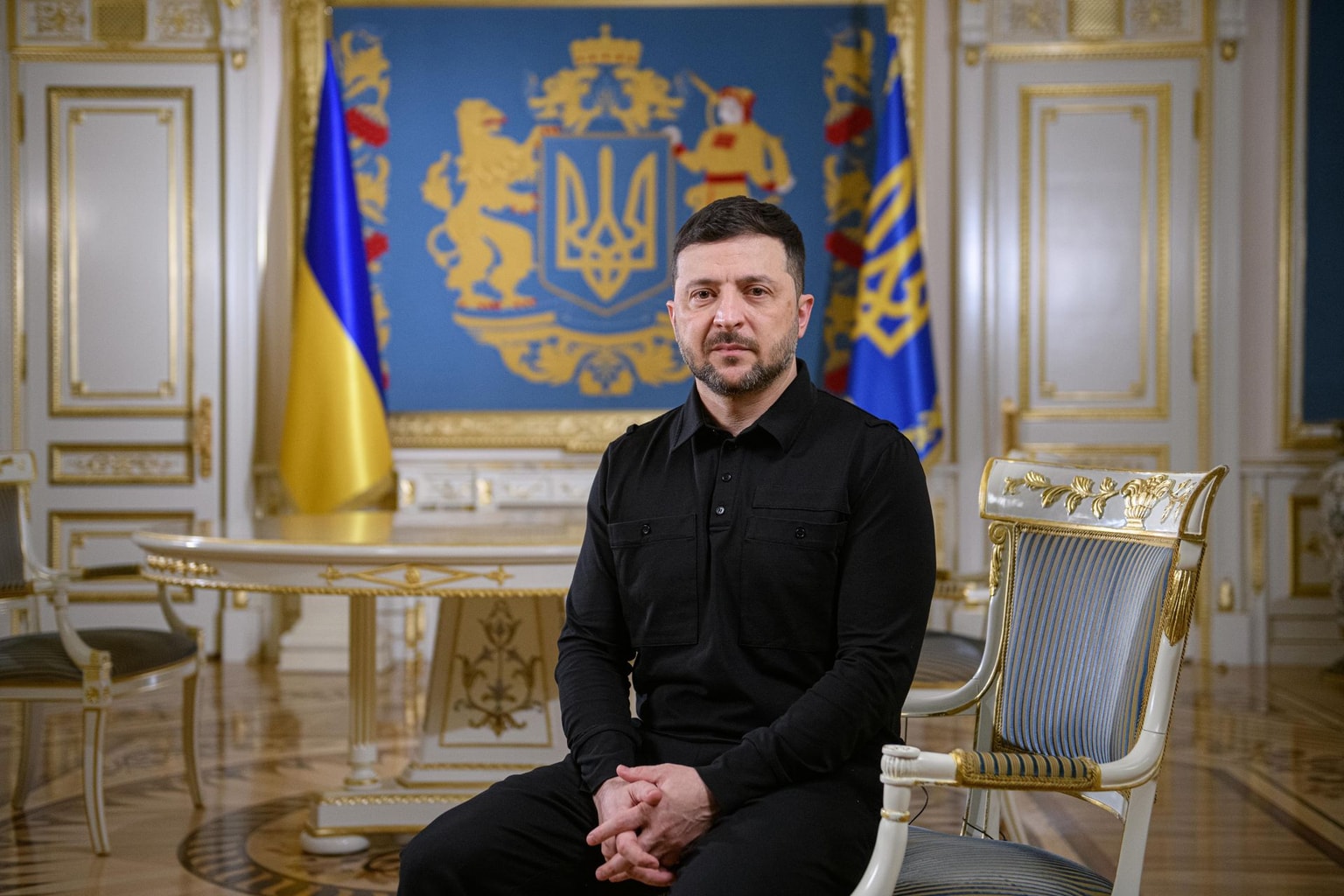Ukraine Business Roundup — Losing Pokrovsk

The following is the Oct. 22, 2024 edition of our Ukraine Business Roundup weekly newsletter. To get the biggest news in business and tech from Ukraine directly in your inbox, subscribe here.
As Russia makes its slow and steady advances in Ukraine’s eastern Donetsk Oblast, its troops are closing in on the key strategic mining town of Pokrovsk.
Losing the town would be a military gain for the Kremlin as it seeks to capture the entirety of the eastern Donbas region, Ukraine’s industrial heartland. It would also mean the loss of a vital coal mine near the town.
The repercussions of its loss would be enormous for Ukraine’s steel industry. The country’s steel production could drop by half if Russian troops capture the mine, Reuters reported on Oct. 16, citing Oleksandr Kalenkov, the head of Ukraine's steelmakers' association.
Located just six miles west of Pokrovsk, the coal mine is the largest coking coal producer in Ukraine and one of the largest in Eastern Europe.
The mine, owned by Ukrainian billionaire Rinat Akhmetov’s company Metinvest, produces coal for coke production needed in steelmaking, which is Ukraine's second-largest source of currency after agriculture, Reuters reported.
Kalenkov said that Ukrainian steelmakers could produce up to 7.5 million metric tons of steel by the end of the year and planned to increase production to more than 10 million tons in 2025.
"But if we lose Pokrovsk, then... we will fall to 2-3 million tons," he added.
In 2023, Ukraine produced about 3.5 million tons of coke, using coking coal from Pokrovsk alone, according to Anatolii Starovoit, the head of the Ukrkoks coke association.
"We don't know where to get coal if Pokrovsk is seized," he said.
Our business reporter Dominic Culverwell reported earlier in September that the industry was already maxed out as occupation, electricity blackouts brought on by Russian attacks, a workforce deficit, high electricity prices, and disrupted supply chains eat away at the industry.
Russia’s advance in the area and potential capture of the mine isn’t just about Ukraine’s overall output, but about the lives of those who work in these industries critical for the economy.
“Metallurgy is the heart of the cities (like Pokrovsk and Zaporizhzhia), and (Metinvest) employs thousands of residents who are at times among the killed and injured during Russian attacks in the area,” Culverwell wrote at the time.
An unnamed steel industry source also told Reuters that producers hope to find alternative sources of coking coal from elsewhere in Ukraine if Russia occupies the Pokrovsk mine.
But imports would inevitably be needed and increase production costs, making steel less competitive.

M&A activity keeps growing
Ukraine is still far from an investor's paradise, but increasingly valuable business deals are being signed in the war-torn country this year, business reporter Dominic Culverwell writes in his latest.
In the first nine months of 2024, there were 36 Ukrainian mergers and acquisitions (M&As) with a total estimated value of $643 million, according to a new report from KPMG Ukraine, an accounting organization based in Kyiv. The average value of M&As was $38 million.
For comparison, there were 37 deals worth $625 million in the same period last year with an average value of $27 million.
The start of the full-scale invasion painted a bleak scene for Ukraine’s M&As with only 28 deals amounting to $494 million in 2022, the lowest level in a decade.
But Ukraine’s business activity is slowly rising from the ashes, bolstered by inflation control and gross domestic product (GDP) growth in 2023, and topped off with resilient companies.
Read the full article here.

Sting like a bee
Kyiv is reportedly developing a new drone able to track and intercept the Shahed-type attack drones Russia has launched on a near-daily basis at Ukraine since it began using them in late 2022.
Ukraine’s new weapon, the first of its kind, is a first-person view (FPV) drone capable of chasing and neutralizing the drones in lieu of conventional air defense systems, the Telegraph reported.
According to the drone's developers, the Wild Hornets group, the drone, dubbed "Sting," will be able to fly at altitudes approaching 10,000 feet, with a speed of over 100 miles per hour. Like all FPV drones, the weapon will be operated from the ground using VR goggles.
"Its average cost is dozens of times lower than that of the Shahed drone," a Wild Hornet source told the Telegraph.
The lower production costs may allow Ukraine to conserve its air defense munitions over the coming months, as Russia intensifies aerial attacks targeting Ukrainian cities and the nation's energy grid.

Blacklisting Russia
The world’s leading anti-money laundering watchdog, the Financial Action Task Force, was scheduled to meet on Oct. 22, where it was expected to debate blacklisting Russia as it increasingly cozies up to FATF-blacklisted countries North Korea and Iran.
The FATF is an inter-governmental organization set up in 1989 to combat money laundering and terrorism financing. Russia was suspended from the group in 2023, but Ukraine and its advocates have been pushing for the country to be blacklisted ever since.
In a recent op-ed for the Kyiv Independent, Timothy Ash, senior strategist at BlueBay Asset Management, writes that the fact Russia, “a clear state sponsor of terrorism,” hasn’t yet been blacklisted “is incredible.”
“Just ask the CEO of Germany’s biggest arms manufacturer Rheinmetall, whom Russia plotted to kill, or consider the Russian bomb plots thwarted by the postal services in the U.K. and Germany. MI5 and its German equivalent have also recently flagged Russia’s growing terrorist threat,” Ash writes.
Ukraine’s Finance Ministry weighed in, saying that as “Russia continues to blatantly attempt to destabilize global financial security, we must act decisively, and we look to the FATF to lead this charge.”
“Blacklisting Russia would send a clear message: aligning with Iran and North Korea to wage war against Ukraine and attack Western interests has consequences,” Ash writes.
Ukrainian representatives were set to make a renewed case at the meeting to have Russia be considered a high-risk jurisdiction. If they can convince the FATF, Russia will join Iran, North Korea, and Myanmar on the blacklist.

Bringing art and people together during war
As a child, Kseniya Morozenko would piece together cut-up postcards at her grandmother’s home in Donetsk Oblast.
Years later, Morozenko was stuck at her apartment in Kyiv during the Covid-19 pandemic and remembered the homemade jigsaw puzzles from her childhood.
She searched in shops in Ukraine, but could only find jigsaws for children, which gave her the idea to set up Frisson, a puzzle company featuring Ukrainian artwork geared towards adults.
Like the puzzle boom during the Covid-19 pandemic, many Ukrainians are seeking comfort and escape from the brutal reality through jigsaws. At the start of the full-scale invasion, one of Frisson’s most popular designs featured a group of friends enjoying a picnic.
“People ordered it as a gift and sent it to their friends with a postcard saying, “Imagine it's us after our victory.”
Read the full profile here.
What else is happening
Ex-military logistics chief named new head of Ukroboronprom state defense company
Oleh Huliak, who has been acting CEO of the state-owned enterprise Ukrainian Defense Industry (Ukroboronprom), was officially appointed to the job on Oct. 21. The new CEO has been tasked with increasing production volumes, building an effective anti-corruption infrastructure, and completing the reform of Ukraine's defense sector.
Ukraine’s economy grew 3.8% year-on-year in September
The revival of domestic demand and the stable operation of the Ukrainian grain corridor in the Black Sea contributed to the growth, the Economy Ministry said on Oct. 18. At the same time, the shortage of qualified specialists is hampering expectations and economic activity of businesses, the ministry said.
Orban again blocks EU efforts on Russian assets plan for Ukraine
Hungarian Prime Minister Viktor Orban again refused to move on an EU plan to adjust its sanctions regime, necessary to allow the U.S. to increase its participation in a $50 billion loan to Ukraine, Bloomberg reported on Oct. 17, citing people familiar with the matter. The EU and G7 nations committed to providing Ukraine with $50 billion in loans by the end of the year that would be repaid using the proceeds from Russian assets frozen in the West.
IMF publishes its 5th review of Ukraine under loan program, disbursing $1.1 billion to Kyiv
In its report following this latest review of Ukraine’s progress under the loan program, the International Monetary Fund said Ukraine's 2024 real GDP growth is forecast at 3%, but that growth will slow in the last quarter of this year due to “a widening energy deficit from higher demand in the heating season” and estimates a winter energy deficit of 3-4 gigawatts.
What I’m watching
The annual meetings of the IMF and the World Bank began this week in Washington. During the meetings, global financial institutions get together to plan global economic policy and how to help partner countries. Ukraine’s Finance Minister Serhii Marchenko is scheduled to speak on Thursday, Oct. 24 on economic aid and recovery at 11:45 a.m. EST.









